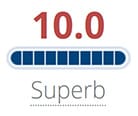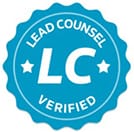Stage 4 Lung Cancer Diagnosis FAQ
When an individual receives a Stage 4 lung cancer diagnosis, it raises many questions regarding the future – and the past.
Below are questions that patients and their loved ones often ask our attorneys. The sources for these answers are the American Lung Association and the American Cancer Society.

What does Stage 4 lung cancer mean?
“Staging” is a system used to identify and track a cancer’s status in the body. Three factors determine the cancer’s stage. The factors are: where the cancer cells or tumor are located; the size of the tumor; and how far the cancer has spread in the body.
When lung cancer reaches Stage 4, it means the cancer has spread throughout the body. Stage 1 lung cancer means the cancer cells are only in the lungs. Stage 2 cancer means it has spread to the lymph nodes. Stage 3 means the cancer is in the lymph nodes and other locations in the chest.
How common is lung cancer?
Lung cancer is the most form of cancer in the U.S., with more cases annually than colon, prostate and breast cancer combined. Each year, more than 150,000 people in the U.S. die of lung cancer.
What is the Stage 4 lung cancer survival rate?
The five-year survival rate for people with Stage 4 lung cancer is 3%. This means people with Stage 4 lung cancer have a 3% chance of living five more years, when compared to people without lung cancer. Patients with a Stage 1 diagnosis have a five-year survival rate of 27%.
What are the symptoms of Stage 4 lung cancer?
Stage 4 lung cancer symptoms can include:
- Persistent cough
- Shortness of breath
- Coughing up blood
- Chest pain
- Lack of appetite
- Weight loss
What are the treatment options for Stage 4 lung cancer?
There are many treatment options, including surgery, chemotherapy, radiation and gene therapy. The best treatment for a specific case depends on many factors. Treatments typically are used to extend lifespan and ease pain, yet there are success stories of people who have beaten Stage 4 lung cancer.
Could the Stage 4 lung cancer have been detected earlier?
Early detection is crucial. Many people who are recently diagnosed with Stage 4 lung cancer learn that a simple, inexpensive test could have caught their cancer at an earlier stage.
The test is called low-dose lung cancer screening. It is recommended by the American Lung Association for people in lung cancer high-risk categories.
Despite the effectiveness of low-dose screening, many hospitals and clinics nationwide do not make the screening part of their processes.
Should I have received a screening test?
If you have been diagnosed with Stage 4 lung cancer and if you believe you should have received a low-dose lung cancer screening test, contact the law firm of Pfaff, Gill & Ports, Ltd. Our attorneys can gather the details of your situation. We can determine whether you and your loved ones might be entitled to financial compensation.













